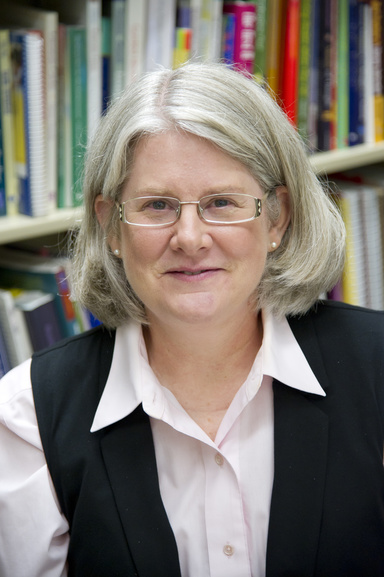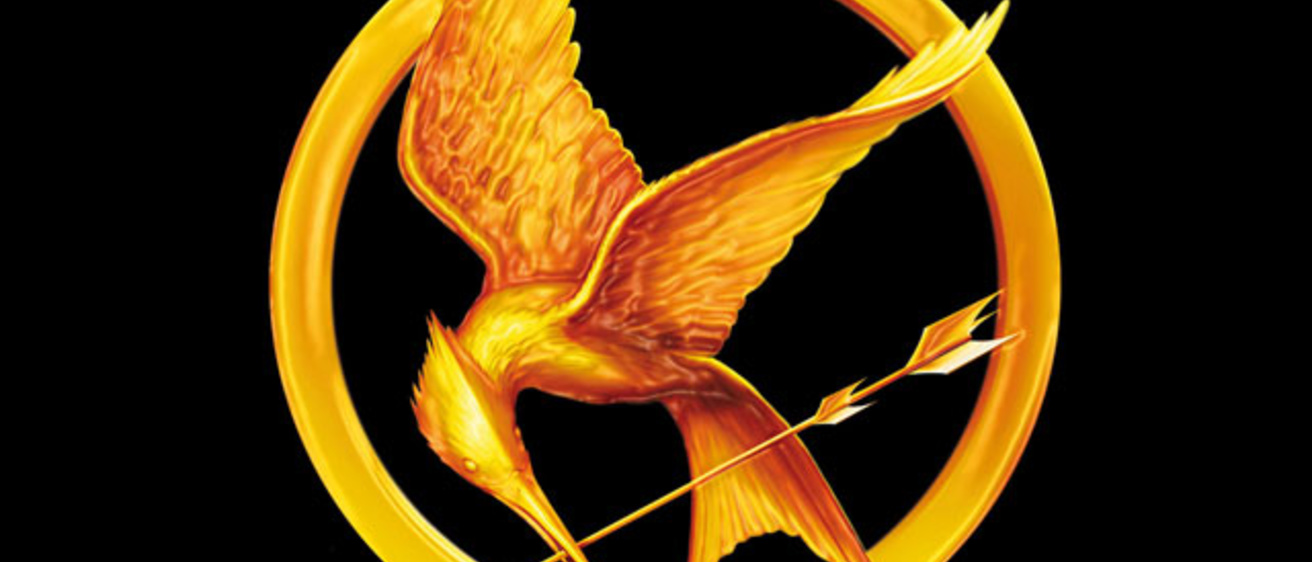Renita Schmidt, an associate professor in the University of Iowa College of Education, has an appetite for good literature.
Her quest to devour quality children’s and young adult’s literature led her to a career as an associate professor in the UI Department of Teaching and Learning.

“I love to read because it takes me to new worlds and introduces me to characters I admire and long to emulate,” says Schmidt. “Literature for children is my favorite reading material. If you don’t read literature for children, you are missing out.”
Schmidt served as a public school teacher for 15 years prior to pursuing her graduate degree at the UI. This is Schmidt’s first year to teach in the college from which she graduated in 2005 with a doctorate in the Language, Literacy, and Culture Program. She then taught at Furman University in Greenville, S.C. for six years before returning to her alma mater.
Following a $155 million opening weekend for the film The Hunger Games, based on the first installment of a best-selling science fiction trilogy by author Suzanne Collins, Schmidt shares her insights on why this novel and film have inspired fans of all ages—from junior high students to college professors—and what parents and teachers can do to guide younger readers.
You teach children’s literature courses in the UI College of Education. How did you get interested in Suzanne Collins' The Hunger Games trilogy, and why do you think these books are so popular?
Although I teach children’s literature courses in the College of Education, young adult fiction is often considered to be children’s literature. Since children learn to read at different rates, elementary-aged children sometimes read books that are considered young adult literature, and sometimes young adult (or adolescent readers) read books that are meant for younger children. In my undergrad children’s literature course, we read both books for young readers and books for older or more intermediate level readers.
I became interested in The Hunger Games when I first read about it on one of the children’s literature blogs I read. I am a big fan of Margaret Atwood novels and especially her dystopian novels for adults (The Handmaid’s Tale, Oryx and Crake, and The Year of the Flood). The Hunger Games is a dystopian novel for adolescents, so that lured me as a reader. I was not disappointed! It’s a great read.
Have you used the book with your students in the UI College of Education?
I used this book in a graduate course I taught at my last institution. The course, Reading and Writing in the Content Areas, dealt with methods for teaching reading and writing across the curriculum. Since The Hunger Games has so many interesting social themes running through it, I used the book as a way to demonstrate the power of literature discussion in curricular areas besides English/language arts—like social studies, for instance. My students LOVED it. It was new enough at that point, that none of my students had read it. Introducing new literature to students is important to me
I haven’t used it here because at this point the book is so popular that many of my students are reading it on their own! It doesn’t mean I’ll never use it in class, but I love it when students haven’t read books I assign in my course because of the surprise element involved in new books.
Though the trilogy is billed as young adult fiction, why do you think this resonates with such a broad range of readers age-wise?
I actually think children’s literature is written for all ages—theoretically, we all transact with books differently depending on our life experiences. Think of how often adults purchase literature for children and then read it with them. Children's literature has to satisfy a large range of ages. Themes in The Hunger Games invite readers to think about family, friendship, love, community, and society as a whole. There are lots of big ideas in this book.
I have heard about children as young as 10 reading this series, but I don’t think every 10-year-old should read them. They are quite dark—and the idea of adults asking children to kill one another in a “game” is quite violent. In dystopian novels, the author’s satire typically helps readers make connections to the world in which we live and this book is no different. I think conversations about class, morality, and love are interesting to people in different ways at different ages, and that helps this book resonate with a variety of age groups.
Have you read the book and/or the entire trilogy? What did you like about The Hunger Games and what did you take away from it?
Yes, I have read all of the books in the trilogy. I find that when I like a book that is a series, I often read them all, but I read the subsequent novels more quickly. For some reason, subsequent books in a series are not always as good to me. Sometimes I think they are edited less carefully once the opening book is accepted or acclaimed.
At this point I feel I must mention something about the politics of children's literature. Publishers want to sell books and "other stuff" to go with children's books. The more synergy and vertical integration that happens when a book becomes popular, the better! Have you seen the Mockingjay pins, for instance? I’m sure there will be all kinds of stuff showing up in the bookstore and online as the movie becomes popular. Even so, I do think this book offers the opportunity to talk about society and life in interesting ways.
What advice might you have for parents whose children want to read the books or see the opening movie?
Ideas in these books are quite mature…the main characters are asked to fight to the death. And that's a horrible thought. I always think parents should read books first if they are concerned about mature topics in the children’s literature their children read. Sometimes parents read books like this together with their children and talk about what is happening. Other times, parents allow their children to read them alone but talk about what is happening more casually. If you don’t want your 10-year-old to read fiction that includes children killing one another and trying to be the last to survive, then don’t let them read the book or see the movie. Frankly, many elementary children will not be interested in this book. I think The Hunger Games is more suitable for middle and high school students than for most elementary students.
What advice do you have for educators who might want to incorporate the book into their curriculum as a teaching tool?
I know a teacher who has already incorporated the book into her curriculum. She did a fabulous unit that involved a competition “similar” to the games in this book. No one was killing anyone, of course, but students read books, wrote essays, and watched movies to earn “points” that allowed them to simulate the games in the book while they were reading and discussing the book in class. It was an interesting technique, I thought. Very competitive though and it raised the question of how healthy competitiveness is in a classroom. I like school settings that are more collegial than competitive, but that is an idea educators continue to debate.
What impact have you seen The Hunger Games make on society?
I don’t know if the book will impact society, but I think there is a phenomenon developing around the books and movie that are similar to Harry Potter and Twilight. I am bothered by students skipping school to wait in line to watch a midnight showing of a movie. Scholastic is the publisher of The Hunger Games books and they are one of the eight largest publishers in the world. They stand to gain so much from the synergy and vertical integration I mentioned above. How long will it be before we see the next movie, the DVD, a Katniss (or Mockingjay) bow and arrow set, and even food packaged like what is delivered to the children in the arena? Too often, children’s books are published because they will enable the sale of lots of other merchandise. That kind of capitalistic power is frightening and I worry about what that means for children’s literature publication.
Will you see the movie?
Yes! I’m excited about seeing the movie in the next week or so. I know I won't like it as much as the book, but look forward to seeing the characters come to life.
